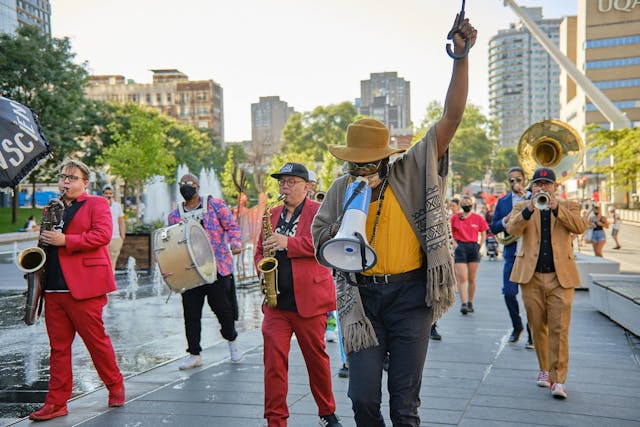And just like that, 2023 has come to a close.
As news can come and go at a rapid-fire pace these days, we thought we'd do the work of digging through an entire year's worth it and bring you the biggest headlines from this past year.
Herein lies a time capsule of the city's biggest headlines from the past year, a collection of rising trends, spectacular events, shocking revelations, municipal mutations, and everything in between.
From a relatively easy-going start to the year of journalists playing with AI and bagel-themed sneakers to wars on orange cones, topics either arrived with a bang and fizzled out or smouldered long after they caught on: Housing was an immense headlining topic, natural disasters touched down in every season of the year... but we wouldn't blame you if you didn't keep track of it all.
For readers who care about Montreal
Create a free account to read this story and access 3 articles per month, plus our weekly Bulletin.
Independent. Local. Reader-supported. Join 10,000+ Montrealers today.
Already a member? Sign in








![The Bulletin: Bus shelter acrobatics, Lunar New Year raves, and Slavic crêpes [Issue #169]](/_next/image?url=https%3A%2F%2Fthemain.ghost.io%2Fcontent%2Fimages%2F2026%2F02%2F51607__F03EE024-17D7-4FB4-B04CC09961F21468-1.jpg&w=256&q=75)




![The Bulletin: 🎊 Your Montreal NYE Party Planner 🎉 [Issue #57]](/_next/image?url=https%3A%2F%2Fthemain.ghost.io%2Fcontent%2Fimages%2F2023%2F12%2F110851.jpeg&w=640&q=75)


![The Reeds: A Novel [Stamped by Author]](/_next/image?url=https%3A%2F%2Fcdn.shopify.com%2Fs%2Ffiles%2F1%2F0601%2F1709%2F0544%2Ffiles%2FIMG_9098.heic%3Fv%3D1730301494&w=3840&q=75)